海外民运的悲剧: 最致命的敌人往往就是“自己人”
(编者按:林樵清先生是海外民运最知名的代表人物之一,是“中国民主团结联盟”、“中国自由民主党”、“民联阵-自民党”和“中国民主运动海外联席会议”的主要创办者和领导人,同时,他也是台湾“军情局”、“情报局”最有才干的特派员之一,监控操纵海外民运组织达十六年之久。)
陈白:台湾政局的变化对海外民运的影响也很大。民进党上台后,魏京生在台湾那边遭到冷落,而王丹、曹长青却很走运,得到大笔经费资助。你是怎么看的?
林樵清:魏京生失宠是必然的。虽然他也支持台独,甚至说“山东也可以独立”,但是,他过于狂妄自大,没有信用,实在很难进行合作。我们辛辛苦苦为“联席会议”筹款,可是,经费拨来之后一下子全被他拿走了。有了钱,他就把我们踢开,去找黄慈萍同居。
陈白:据说魏京生在海外民运圈里已经没有人缘,而台湾“国安局”对他的评语是“缺乏做事能力”,只有“文宣”价值。
林樵清:凡是他看不顺眼的,都被他说成是“共产党特务”,比如徐文立、王希哲、鲍戈、王军涛、王丹,还有我。到后来,他还大骂薛伟、倪育贤、齐墨是“台湾狗特务”。黄慈萍现在的日子也不好过,经常哭得两眼红肿。
陈白:美国“国家民主基金会”(NED)一直不给魏京生拨发经费,现在又把王丹、王军涛的《新闻自由导报》的经费停了,是怎么回事?
林樵清:魏京生的组织(“海外民运联席会议”)过于政治化,美国不便公开支持。《新闻自由导报》的经费被砍,则可能是因为王丹、王军涛在台湾“国安局”那里设有“二王专案”项目,其背景牵涉敏感的情报部门。
陈白:王丹、王军涛声称《新闻自由导报》是“六四”以后一百多位中国新闻工作者在美国所创立的追求民主自由理想的活动平台,美国方面不应该为省钱而停止资助。
林樵清:停发经费一事跟美国“国家民主基金会”节省开支没有关系。近年来NED经费总额增幅加大,而他们本来拨给《新闻自由导报》才几万美元,仅够吴仁华(编辑)一人的工资。当然,所谓“一百多位新闻工作者”明显是假的,他们总共不过几个人而已。
陈白:吴弘达的“劳改基金会”和“中国观察”网站,以及刘青、谭竞嫦的“中国人权”理事会和《华夏电子报》,每年都获得NED数十万美元的经费,两者反差实在太大了。
林樵清:NED主管人员在审核海外民运人士申请资助的项目时,往往会向吴弘达、刘青了解他们的情况。吴和刘不愿意看到别人拿到钱,于是从中作梗,搞一些小动作。“中国发展联合会”和《大参考》电子报本来很有希望获得资助,结果都被刘青和吴弘达破坏了。
陈白:据说刘青、吴弘达早就与魏京生、王丹闹翻了,在双方的较量过程当中,魏京生和王丹都处于下风,刘青和吴弘达最终赢了这场“资源”争夺战。
林樵清:民运分子最大的悲哀就是“自己人”往往正是最致命的敌人。《中国之春》曾经拥有台湾来的大笔秘密经费,被徐邦泰、伍凡霸占着,不按章程交出来,还策动分裂组织。后来伍凡、王德耀与徐邦泰闹翻,揪出徐的贪污问题。台湾怕引火烧身,索性断了资助。
陈白:台湾切断经费,造成他们撑不下去,只好被迫接受台方要求调整人事的方案,随后再继续发放经费,这其实也是台湾方面解决海外民运纷争的措施之一。
林樵清:是的。民进党政府正是通过这样的方法,将他们所支持的张伟国和王丹分别扶上了《中国之春》和《北京之春》“社长”宝座。目前,台湾扶植的三个重点项目是:薛伟和王丹的《北京之春》、谭竞嫦和胡平的“中国人权”、王军涛和陈破空的“宪政之友”。
陈白:在美国,法轮功和“藏独”的势力远远超过海外民运,而法轮功发起“退党”活动,大有取代海外民运之势,台湾方面肯定也会倚重法轮功,为他们设立相应的资助项目。
林樵清:海外民运人数不多,全球加起来才一百来人,而党派和团体竟有四、五十个之多。每当他们相互攻击时,总是说对方是“中共特务”,令台湾非常头疼。法轮功没有这样的麻烦事。唐柏桥很聪明,抢在薛伟、刘青之前与法轮功合作,难怪刘青要让倪育贤、陈破空去对付他。
陈白:说到底,民运内部每次吵架都是为了争“资源”。只有显示自己是“主流”,别人是“非主流”,这样才能够得到经费资助,才能够保护既得利益。
林樵清:刘青是这方面的高手。他把魏泉宝安插在“正义党”里,把陈破空安插在魏京生身边,把唐柏桥安插在王丹那里,后来又把陈破空安插在彭明那里,安插到王军涛和王丹那里,目的都是为了探听消息和挑拨离间,最后设法让他们全都玩完,落光羽毛不如鸡。
陈白:徐水良把民运分为“流氓民运”、“正派民运”、“特务民运”、“主流民运”,并且说海外民运各组织已经被中共所领导,一半以上的人都是“共特”,是否言过其实?
林樵清:先把别人说成特务,那么自己肯定就不是特务了;先把别人说成是流氓,那么自己肯定就很正派了;既然别人都有问题,那么自己便是民运的“主流”或“核心层”了。徐水良的逻辑大概就是这样的吧。当然,徐水良主要还是受了刘青、薛伟的利用。
陈白:借徐水良的那张脏嘴去诋毁众多知名人物,是刘青、薛伟的高招。有时候刘青还利用陈破空,薛伟还利用张菁,去诽谤、诬蔑他人。可见民运“这潭浑水不好趟”。
林樵清:其实刘青、薛伟从来就没有把徐水良当“朋友”看。徐当了“民联”的“主席”,而且还是“民运理论家”,却进不了“北春”的班子,即使在“机关刊物”挂个名也不许;此外,“中国人权”和“公民议政”都不许他进。凡是薪水高的、可出名的都没他的份。
陈白:徐水良还说《世界日报》是中共的喉舌,往往它捧谁,谁就一定有问题,它贬谁,谁就是“真朋友”。他一再指责《世界日报》报道鲍戈、谢万军、“正义党”消息。
林樵清:徐是民运代表人物,不料他到美国的消息,《世界日报》只在次要的版面作简短报道。相反鲍戈老母去美国,《世界日报》却重复报道,先是报道她获得护照,后来曾慧燕又写长篇报道说鲍母即将来美,最后又刊登了鲍母在机场与儿子拥抱的彩色大照片及报道。
陈白:我不太相信《世界日报》是“中共的喉舌”。当年,台湾李登辉政府资助王若望召开“民联”、“民阵”合并大会的八万美元,就是通过《世界日报》报社分两次拨发的。
林樵清:曾慧燕报道鲍戈祝贺北京申办奥运成功时,用了大篇幅和大标题,而把魏京生、吴弘达及“学自联”反对申奥的消息,只作了插叙,一笔带过。不过,我想《世界日报》这样处理自有他们的道理,新闻是他们的专业。曾慧燕总不会是“中共特务”吧。
陈白:唐柏桥也在《大纪元时报》上说《世界日报》“亲共”。这使我想起以前徐邦泰的一句话----“没有世界日报,就没有海外民运。海外民运实际上是‘世界日报民运’。”
林樵清:《大纪元》当然巴不得借唐柏桥之口去攻击《世界日报》。但是民运人士这样做,其结果是以后很难得到许多中立媒体的同情。刘青、张伟国、胡平、林保华、张先樑是《大纪元》的编委、顾问、专栏作家,他们为什么不亲自出头?得罪《世界日报》没好处。
陈白:徐文立出来后搞了个“民主党流亡党部”和“中国民主政党联盟”,好像也没有做出什么富有成效的事情来,也没有能够整合海外的“中国民主党”。
林樵清:要从台湾搞到钱,先得建一个组织,立一个项目。徐为了争得资源,明知道薛伟是台湾“军情局”特工,却仍把“政党联盟”的实际控制权交给薛,是很不道德的,等于出卖了“联盟”。薛伟主要是想通过“联盟”来抵消魏京生的“联席会议”,与徐一拍即合。
陈白:照常理说,薛伟目前应该着重扶持王丹,怎么跑去徐文立那边?当初徐文立、王有才、秦永敏在中国被判刑,他的《北春》美国版却拒绝在封面上刊登他们的像片。
林樵清:薛伟和刘青其实都不愿看到王丹扩展影响,担心被他夺去资源。王丹乱搞同性恋的内幕,其实就是他们抛给台湾《TVBS》周刊的。手法如同当初刘青搞臭魏京生一样----刘把有关魏的负面消息抛给《华尔街日报》记者,结果魏被世人看作是一个精神病人。
陈白:您是支持魏京生组建“海外民运联席会议”的,而且,据说以前您和魏京生的妹妹魏玲合作得很默契,现在你们之间还有来往吗?
林樵清:海外民运的风波使我寒心,我已决定彻底隐退,安享晚年。有些人,以前我把他们当朋友,可是他们却在背后捅刀子;有些人,以前被我误伤的,回过头来想想,他们其实是好人。魏玲与尉小鹏比较亲近。本来,我们只是工作关系而已。
The Tragicomedy of the Overseas Chinese Democratic Movement
Normally, the ESWN site takes no interest at all in the overseas Chinese democracy movement whatsoever. Once upon a time, when Sun Yat-sen worked to overthrow the Manchurian dynasty, he had broad support among the Chinese Diaspora (in Hong Kong, Japan, the United States, Europe and Southeast Asia). Today, though, the overseas Chinese democracy movement just does not have that level of support in the Chinese Diaspora. Who is to blame? Less about the Communist Red Terror than the democratic activists themselves. The following is the translation of an interview with one retired activist who seemed willing to speak his mind.
Is this interviewee trustworthy? It does not matter, really. You can talk to any of the other people in the long cast of characters. They will probably give you a completely different spin as to who the heroes and villains are, but the essential descriptions of the environment will be the same: a small number of democratic activists, maybe as few as 100 in total around the world; a confusing number of organizations (note: I kept think back to the Judean People's Front vs the Popular Front for the Liberation of Judea in Monty Python's Life of Brian); manipulation and control by governments, intelligence services and organizations (China, Taiwan, United States, a certain religious cult); the primacy of procuring resources over all other goals and objectives; internecine backstabbing; deceptions and betrayals; fighting for media coverage; etc.
A reading tip: Do not try to keep track of the persons and the characters, because it is not worth the trouble. Instead, stay focus on the question: What has any of this got to do with promoting democracy in China?
An interview with Lin Qiaoqing (林樵清), who was a very famous member of the overseas Chinese democracy movement, being the founder and leader of a number of organizations। All this time, he had been an agent of the Taiwan intelligence service. He is now retired.
Chen Bai (陈 白): The changes in the political situation in Taiwan affects the overseas democratic movement. Since the Democratic Progressive Party (民进党) assumed power, Wei Jingsheng (魏京生) was ignored by Taiwan, while Wang Dan (王丹) and Cho Changqing (曹长青) got lucky and received large amounts of funds. How do you see it?
Lin Qiaoqing: It was inevitable that Wei Jingsheng would go out of favor. Although he supports Taiwan independence, and he even said "Even Shandong province can become independent," he is too egotistical and unreliable, and therefore impossible to work with. We worked so hard to get funding for the Chinese Alliance for Democracy (联席会议). But he took all the money for himself and then he kicked us out in order to cohabitate with Huang Ciping (黄慈萍).
Chen: It is said that Wei Jingsheng has no friends anymore in the overseas democratic circle. The Taiwan National Security Bureau characterized him as "lacking ability to do things" and he only has "propaganda" value.
Lin: Anyone whom he does not like, he calls them "Communist spies", including Xu Wenli (徐文立), Wang Cizhe (王希哲), Bao Ge (鲍戈), Wang Juntao (王军涛), Wang Dan and myself. Later on, he even loudly condemned Xue Wei (薛伟), Ni Yuxian (倪育贤) and Qi Mo (齐墨) as "Taiwan dog spies." Huang Ciping is not having a good time right now, and her eyes are often red from the constant crying.
Chen: The US National Endowment for Democracy refused to fund Wei Jingsheng, and now they have cut off funding to Wang Dan and Wang Juntao's Press Free Guide. What is the deal?
Lin: Wei Jingsheng' organization -- Overseas Chinese Democracy Coalition -- was too politicized, and that is why the American don't want to publicly support it. The reason why Press Free Guide has it funding cut off is probably because Wang Dan and Wang Juntao had been hooking up with Taiwan to foster independence over there.
Chen: Wang Dan and Wang Juntao claimed that Press Free Guide is a platform formed by more than 100 Chinese media workers in the United States to pursue the ideals of democracy and freedom after June 4. The Americans should not have cut off the funding just to save money.
Lin: The funding stoppage had nothing to do with the NED wanting to save any money. In recent years, the budget for the NED has grown a lot. They only give Press Free Guide some tens of thousand of US dollars per year, just enough to pay for the editor Wu Renhua (吴仁华)'s salary. Of course, the so-called "more than one hundred media workers" is obviously false, and they have no more than a handful of people.
Chen: Harry Hongda Wu(吴弘达)'s Labor Reform Foundation (劳改基金会) and Observe China (中国观察) website, Tan Jingchang (谭竞嫦)'s Human Rights In China and Huaxiabao can get hundreds of thousands of US dollars from the NED. It is a big difference.
Lin: When the NED administrator evaluates the proposals for funding from overseas democratic proponents, they often consult with Wu Hongda and Liu Qing (刘青). Neither Wu nor Liu want to see anyone else get money, so they always erect some obstacles. The Chinese Development Alliance (中国发展联合会) and Dacankao (大参考) were hoping to get some funding, but Liu Qing and Wu Hongda barred them.
Chen: Supposedly, Liu Qing and Wu Hongda have split away from Wei Jingsheng and Wang Dan. In the battle between the sides, Wei Jingsheng and Wang Dan lost and so Liu Qing and Wu Hongda won the fight for the "resources."
Lin: The greatest tragedy of the overseas democratic movement is that your "own people" are often your most deadly enemy. China Spring (中国之春) once had large amounts of secret funds from Taiwan. Xu Bangtai (徐邦泰) and Wu Fan (伍凡) seized the money and refused to hand it over according to procedure, so the organization was split up. Afterwards, Wu Fan and Wang Deyao fell out with Xu Bangtai and revealed Xu's corruption problems. Taiwan wanted no part of any of this, and they cut off the funding altogether.
Chen: When Taiwan cut off the funds, they could no longer continue. So they had to accede Taiwan's demands on reorganization in order to get funded again. Actually, this is one way for Taiwan to resolve the fights among overseas democracy organization.
Lin: Yes. The DPP government in Taiwan used this method to elevate Zhang Weiguo and Wang Dan to become the "publishers" of China Spring and Beijing Spring (北京之春) respectively. At the moment, Taiwan is nurturing three major projects: Xue Wei (薛伟) and Wang Dan's Beijing Spring, Tan Jingchang and Hu Ping (胡平)'s Human Rights in China and Wang Juntao and Chen Pokong (陈破空)'s Friends of Practical Politics (宪政之友).
Chen: In the United States, the Falun Gong and the Tibetan independence movement are far more powerful than the overseas democratic movements. The Falun Gong started the "Resign from the Party" movement, and seems to have overtaken the overseas democratic movement. Taiwan is definitely counting on the Falun Gong, and have set up appropriate projects to fund them.
Lin: There are not many people in the overseas democratic movement. It adds up to only 100 people around the world, but somehow there are forty to fifty organizations. Whenever they attack each other, they label the other as "Communist spies" and this gives Taiwan a headache. There is no such problem with Falun Gong. Tang Baiqiao (唐柏桥) is very smart, and he jumped ahead of Xue Wei and Liu Qing to collaborate with the Falun Gong. No wonder Liu Qing must let Ni Yuxian oppose Tang.
Chen: The bottom line is that the internal fights within the overseas democratic movement is always about 'resources'. You can only get financial support if you prove that you are the "mainstream" while everybody else is not, and then you can protect your own interests.
Lin: Liu Qing is a master in this. He inserted Wei Quanbao (魏泉宝) inside the Justice Party (正义党) and Chen Pokong with Wang Dan first and later with Peng Ming (彭明), Wang Juntao and Wang Dan to serve as spies and agent provocateur and then caused them to fold completely.
Chen: Xu Shuiliang (徐水良) had classified the overseas democratic movement into: "hooligan democratic movement", "proper democratic movement", "spy democratic movement" and "mainstream democratic movement." He also said that many overseas democratic organizations are led by the Chinese communists and that more than half the people are "Communist spies." Is that an exaggeration?
Lin: If you say that someone else is a spy, then you mustn't be a spy; if you say that someone else is a hooligan, then you must be proper; if everybody else has problems, then you must be the "mainstream" or "core" of the overseas democratic movement. That was probably Xu Shuiliang's logic. Of course, Xu Shuliang was principally used by Liu Qing and Xue Wei.
Chen: Liu Qing and Xue Wei were brilliant in using Xu Shuiliang's voice to smear any number of famous people. Sometimes, Liu Qing uses Chen Pokong while Xue We uses Zhang Qing (张菁) to slander and smear other people.
Lin: Actually, Liu Qing and Xue Wei have never treated Xu Shuiliang as a 'friend.' When Xu became the president of the Chinese Alliance for Democracy as well as a "democratic movement theoretician", he was not admitted into the Beijing Spring group, so he could not even get his name listed in the organization's publication. Also, Human Rights In China and Civilian Political Discourse (公民议政) will not admit him either. Anything that pays in terms of money and fame is out of bounds for him.
Chen: Xu Shuiliang said that the World Journal (世界日报) is a Communist propaganda tool. If the newspaper praises someone, that person must be problematic; if the person disparages someone, that person must be a 'true friend.' He condemned the World Journal for carrying information on Bao Ge and Xie Fangjun (谢万军) and the Justice Party.
Lin: Xu is a representative of the democratic movement. But the World Journal published the news of his arrival in the United States very briefly. By contrast, when Bao Ge's mother came to the United States, the World Journal repeatedly reported on her. First, they reported how she got a passport, Then Zeng Huiyan (曾慧燕) wrote a long report that Bao Ge's mother will be arriving. Then, they published a report and a color photograph of Bao hugging his mother at the airport.
Chen: I can't quite believe that the World Journal is a "propaganda tool of the Chinese Communists." Back then, when the Lee Tenghui (李登辉) government of Taiwan funded Wang Ruowang (王若望) to hold the meeting to merge the Democratic Alliance and the Democratic Front, the 80,000 US dollars was distributed by the World Journal in two separate payments.
Lin: Zeng Huiyan reported on Bao Ge being happy about Beijing winning the bid for the 2008 Olympics with a long article and a big headline, but she only made a brief mention of how Wei Jingsheng, Wu Honda and the Independent Federation of Chinese Students and Scholars in the US (学自联) opposed the decision. But I think that the World Journal must have a reason to do this. After all, news is their profession. Zeng Huiyan is unlikely to be a "Communist spy."
Chen: Tang Baiqiao said in the Epoch Times that the World Journal is "friendly towards the Communists." This reminds me of what Xu Bangtai once said -- "Without the World Journal, there would be no overseas Chinese democratic movement. The overseas Chinese democratic movement is actually the 'World Journal democratic movement'."
Lin: The Epoch Times was obviously happy to use Tang Baiqiao to attack the World Journal. But when the democracy activists do that, the result is that they lose a lot of sympathy from the neutral media. Liu Qing, Zhang Huiguo (张伟国), Hu Ping, Lin Baohua (林保华) and Zhang Xianliang (张先梁) are editors, consultants and columnists for the Epoch Times. Why won't they speak out themselves? There was no point in offending the World Journal.
Chen: After Xu Wenli came out, he started a Democratic Party In Exile (民主党流亡党部) and an Alliance of Chinese Democratic Political Parties (中国民主政党联盟), but he does not seem to have accomplished anything effective, and he has not been able to unite the overseas "Chinese democratic parties."
Lin: If you want to get money from Taiwan, you must build an organization and set up a project. In order to get the resources, Xu knew that Xue Wei was a spy from Taiwan intelligence, but he still turned over control of the Alliance of Political Parties to Xue. That is immoral, and he has sold out the Alliance. Xue Wei wants mainly to use the Alliance to neutralize Wei Jingsheng's Chinese Alliance for Democracy and that is why he got along with Xu immediately.
Chen: Logically, Xue Wei should be propping up Wang Dan. So why is he with Xu Wenli? When Xu Wenli, Wang Youcai (王有才) and Qin Yongmin (秦永敏) were sentenced in China, the North American edition of Beijing Spring refused to feature their photographs on the magazine's front cover.
Lin: Neither Xue Wei nor Liu Qing want to see Wang Dan accumulate any influence. The revelations about Wang Dan's homosexuality were forwarded by them to Taiwan's TVBS Weekly. The process was identical to what Liu Qing once did to Wei Jingsheng -- Liu gave negative information about Wei Jingsheng to The Wall Street Journal, so that Wei ended up being regarded as a mental patient.
Chen: You supported Wei Jingsheng setting up the Overseas Chinese Democracy Coalition. Furthermore, you were supposed to get along very well with Wei Jingsheng's younger sister Wei Ling (魏玲). Do you still communicate with each other?
Lin: The overseas democratic movement has disheartened me. I have decided to withdraw completely and live out my remaining years in peace. There are some people whom I regarded as friends, but they stabbed me in the back; there are those whom I injured by mistake, but they were actually good people in retrospect. Wei Ling and Wei Xiaopeng(尉小鹏) were closer to me. But then, we were just work associates.
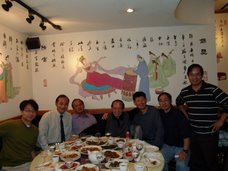
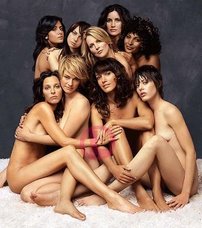
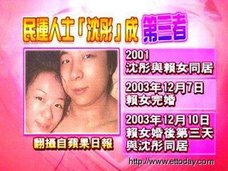
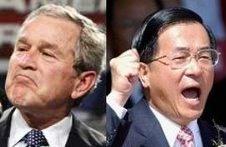
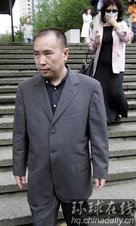
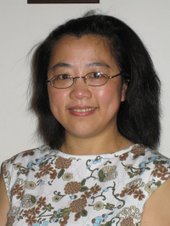
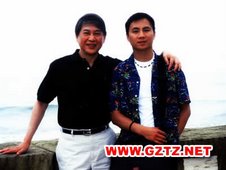
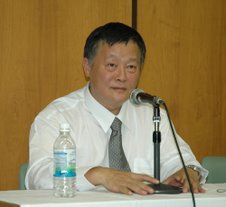
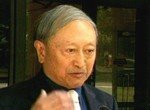
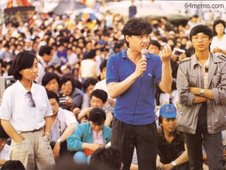
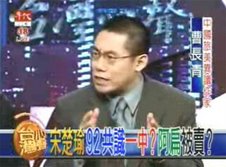
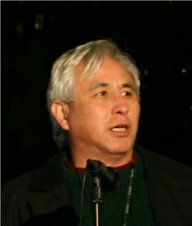



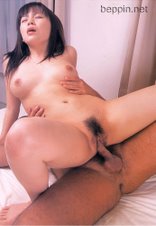


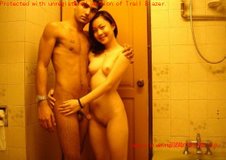


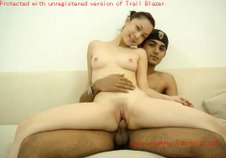


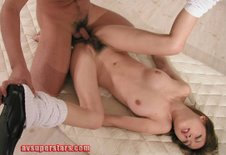






没有评论:
发表评论